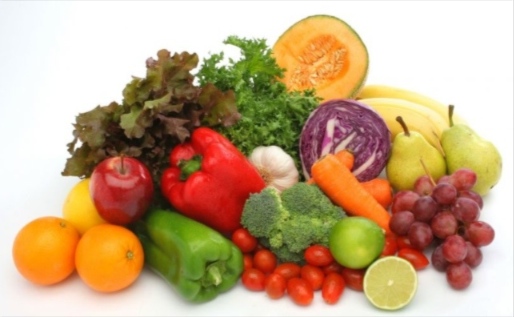
A few months ago a very good friend of mine’s mother passed away from colon cancer and the horror and pain of the situation has made me all the more aware of my health and what I can do to extent a healthful life. I’ve ordered more books than I care to count from Amazon on everything from homeopathic remedies and cleanses, to preventing cancer with nutrition and the world’s “cleanest” restaurants and one of the things that comes up often is the idea of food combining.
I was unaware of the nutritional concept prior to a few months ago and find it absolutely fascinating in a “how did I not know this before” way! Different foods call for different digestive enzymes and they’re meant to work independently and when they’re forced to work together, chances are you’ll feel boated, gas-y, and lack energy. Further, certain foods take longer to digest than others (liquids are the fastest; animal protein takes the longest), so for example, if you have a steak for dinner and then fruit for dessert, the fruit will start making its way through your body and eventually get blocked by the beef. So what you’re thinking? Well, as a result the fruit just sits on top of the protein and femerents (hello gas!), as it waits for the protein to digest. Who knew that one of the biggest nutritional myths would be that fruit is the best dessert option? Instead, try dark chocolate (at least 70%). For more on what you can combine and what should never be combined jump!
“The 3-Day Cleanse,” has an awesome Food Combining Cheat Sheet to help figure out what we “should” eat and when –
-Protein + Carbs or Fat = Poor (so, forget about beans and rice, steak and potatoes, and skip the lemon butter on your fish).
-Carbs + Fat = Good
-Non-Starchy Vegetables + Fat or Carbs or Protein = Excellent (non-starchy vegetables include asparagus, leeks, celery, broccoli, kale, lettuce, spinach, zucchini, garlic, green beans, tomatoes, and cucumbers).
-Mildly Starchy Vegetables + Carbs or Protein = good (mildly starchy vegetables include artichokes, beets, carrots, cauliflower, corn, and peas).
-Always eat fruits alone and try not to combine different fruits.
Another book I highly recommend is “Do It or Age Quickly.” The author, JB Berns, goes more into depth on the principles of Food Combining and offers up some useful diet advice:
-Eat only one major protein at a single meal (again, because different proteins have different digestive enzymes).
-When you wake up in the morning have an 8-ounce glass of warm water with 1/2 a lemon as it’s a wonderful detoxifier and will aid in your daily digestion.
-Before swallowing, chew your food until it’s liquid as it will help improve your digestion and nutrient assimilation.
-Try not to drink liquids during your meals as it does not allow you to chew your food thoroughly and may wash down nutrients prematurely.
-Avoid extreme hot or cold temperatures in food and drinks as they can irrtiate the lining of your digestive track.
I snack on fruit A LOT so it has been hard for me to avoid eating fruits too close to my protein and not drinking during my meals has been a challenge as well. Overall though these prinicples ring true for me and though some studies have found them not to hold up to all of their claims, they have helped make me more conscious of what I’m eating and that’s of huge benefit. Do you eat based on the principles of food combining?
